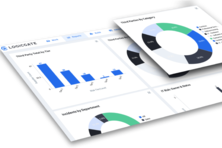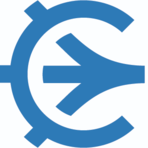HIPAA refers to the United States Health Insurance Portability and Accountability Act of 1996. It is a federal law that specifies standardized information privacy and security terms and conditions, with the sole intention of protecting patient/customer medical records. Healthcare organizations and companies have to adhere to HIPAA standards to legitimize their business.
HIPAA compliance software is designed to help make the risk management and compliance process easier and more efficient for organizations. This kind of software solution is often integrated into a much broader platform referred to as compliance management software or risk assessment and compliance solution.
Compliance management software solutions are used by businesses in various industries to comply with the rules and regulations set forth by regulatory boards and other authorities. These include industry, legal and security standards, which is where HIPAA compliance software solutions fall under. The software allows you to gather all compliance information and knowledge under a single platform, so you can adjust and/or maintain all the required compliances more efficiently.

 LogicGate is a cloud-based governance, risk management and compliance (GRC) platform. It is suitable for businesses of all sizes in many industries. It offers enterprise risk, regulatory change, policy, incident, audit and case management capabilities within one platform.
LogicGate is a cloud-based governance, risk management and compliance (GRC) platform. It is suitable for businesses of all sizes in many industries. It offers enterprise risk, regulatory change, policy, incident, audit and case management capabilities within one platform.
HIPAA compliance software is generally incorporated into software platforms used by healthcare organizations and service providers. All organizations and businesses in the healthcare sector use HIPAA-compliant software. Otherwise, these companies would not be allowed to operate if their systems do not meet HIPAA guidelines.
There are three main types of compliance management software, the first being an all-purpose platform. This type of software platform offers generic features and tools for compliance management across multiple industries. In other words, it’s not industry-specific.
The second type is the GRC platform, which stands for governance, risk management and compliance. Like all-purpose platforms, GRC platforms provide generic compliance management solutions as well. The main difference is that in addition to compliance management, these platforms also offer a broader set of features for legal management, IT risk management and business continuity planning for corporate-level governance and risk management.
The third type are industry-specific applications. This is where HIPAA compliance software solutions fall under. These are designed to help organizations operating in heavily regulated industries like the industrial manufacturing sector, financial services and the health care industry.
In the healthcare sector, these platforms help organizations provide technical safeguards to avoid a potential data breach and to ensure the security of client/patient records. Covered entities and business operators could be held liable for breaking the HIPAA privacy rule if they leave patient health information unprotected.
Data encryption, detailed auditing and network security are just a few of the measures any software solution claiming to be HIPAA compliant must address. HIPAA requires all client/patient electronic health information to be fully encrypted to avoid possible data breaches. Networks must be protected from external attacks such as IP spoofing, port scanning, DDoS attacks and packet sniffing.
HIPAA-compliant software systems must also be able to provide detailed system event logs, such as login attempts and/or data access attempts. They have to have the capability to maintain detailed time-stamped records of any changes made to patient/client data and who initiated those changes. Most importantly, the software solution must pass a HIPAA audit in order to be certified as HIPAA compliant.
Other notable features that you may find in your HIPAA compliance software or compliance management solution for that matter, include fraud management, change management and regulatory intelligence, audit management, compliance reporting, conflicts management, controls monitoring, compliance registry and policy management.
Change management and regulatory intelligence allows you to monitor XML and RSS feeds for regulatory information. You will get alerts and notifications whenever government agencies, regulatory boards and industry authorities put out changes to their guidelines that you need to comply with so you can continue to operate as a covered entity or business.
The compliance registry and policy management function is all about version control, policy authoring and approval workflows. Top-tier HIPAA compliance software, and compliance management solutions, allows you to record company policies in a secure central repository that has the ability to map relevant regulations and policy changes. This helps to streamline your company’s compliance process.
A good example of this type of software solution is LogicGate. LogicGate is a workflow automation system designed to help organizations create business applications as well as streamline communications on all levels. In addition to its many core functions, the software also provides business associate agreements to certify services, as well as allow users to manage the risk and compliance process through automation and by deploying workflows as self-contained applications.
Using a HIPAA-compliant software solution can provide your business with many benefits, including:
Healthcare organizations, businesses and healthcare service providers have the responsibility to safeguard any protected health information (PHI). Using a HIPAA-compliant platform for managing electronically protected health information is a necessity for businesses and organizations operating in the healthcare sector.
Using HIPAA compliance software also helps you and your management team stay on top of all regulations and policies. Regulatory standards and policies can change at any time. Your compliance software solution can provide alerts and notifications of impending compliance deadlines and possible changes to the current standards so you will have ample time to comply with those changes and therefore avoid possible penalties.
Running a business that complies with industry regulatory standards can provide a huge advantage. For healthcare organizations, professionals and service providers, being known as a company that takes HIPAA compliance seriously can enhance brand loyalty and trust. Moreover, it will also help bring in new investors to your organization and attract quality employees and customers, thereby ensuring growth and prosperity for your business.